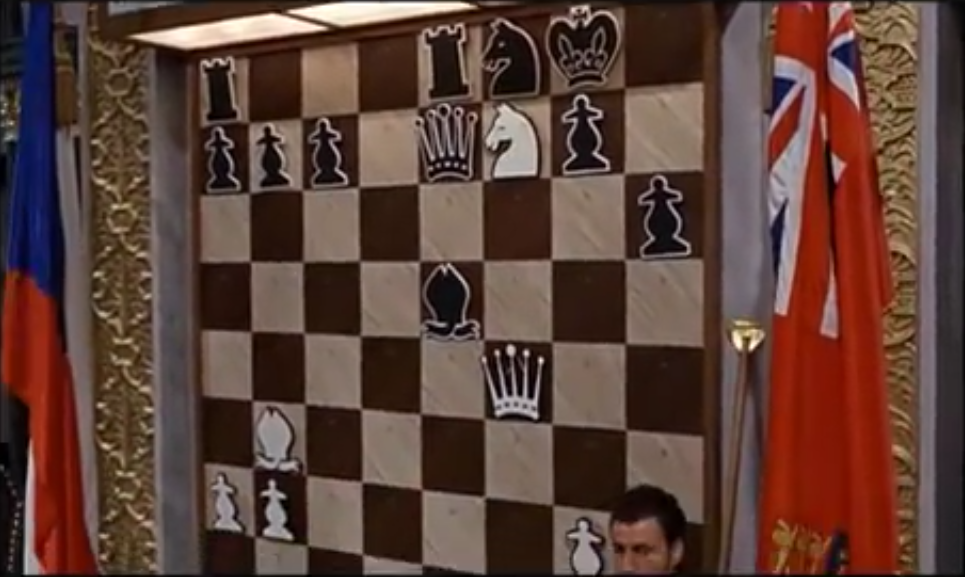You know what? No. I’m fed up with it. Week after week I look at the infantile doodlings of some guy who has never seen a Sicilian dragon in his life, like a trained pianist who has to listen to an eight-year old grope his way through Petzold’s1 minuet in G. This will not stand. I want a break. I want to look at a proper chess game for once. Luckily, there is one movie which is famous for featuring a real chess game. One movie which every chess blog ends up talking about. That movie is From Russia with love.
In the, admittedly quite small, circle of CIPC connoisseurs, it is common knowledge that the game between Kronsteen and McAdams is really a game between Spassky and Bronstein. Here is the position as shown in the movie:

But… But that’s… No! Nooo! Betrayal! I was promised Spassky-Bronstein! Everybody says it’s Spassky-Bronstein! Perhaps that game wouldn’t have scored very high on realism, but it is, you know, a proper game. From a Soviet championship, no less. And they do this to it?!Just follow the link above and have a look at the original game. Go ahead, I’ll still be here when you’re back.
…
Did you see that? There should be pawns on d4 and c5! Why are there no pawns on d4 and c5? Clearly somebody on set must have been familiar with the game. How could they have forgotten them?
Or maybe they didn’t. Maybe there is something more insidious going on. Maybe the pawns being left out is some kind of code. Maybe the responsible party assumed it would be too obscure an error for anybody to notice. Maybe I’ll get the real James Bond chasing me around now.2
But there’s something more interesting going on here. Everybody knows about the movie, of course, but it was based on a book by Ian Fleming which was published in 1957. The usual theory is that Fleming had another game in mind, played by Reshevsky and Botvinnik in 1955. The movie came out in 1963, but it seems reasonable to assume that it was supposed to be set in 1957, as the book is. This would make the Spassky-Bronstein game a very strange sort of anachronism.
1. [Not Bach‘s.]↩
2. [In which case we could talk about birds.]↩